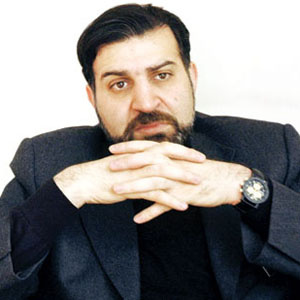Resumption of Nuclear Negotiations and the Points Iranians Should Bear in Mind

Iran’s nuclear program, especially the uranium enrichment, have turned into a knot that not only has affected Iran’s ties with other countries, especially Western countries, but also has created economic problems for the country, as a result of three UNSC resolutions and unilateral sanctions of West; though they are tolerable due to Iran’s high potential.
Iran’s nuclear case has two aspects: first, cooperation with IAEA that is still in a complicated situation. When NIE reported that Iran has stopped its military nuclear program since 2003, IAEA faced a legitimacy crisis in its performance. Hence, it compiled the record of Iran’s nuclear activities in the last 18 years to outplay the NIE report. In its last report, IAEA has provided a summary of Iran’s activities in the field of defensive and missile programs; we can even say it has put one step further compared to NIE report.
Second is the history of Iran’s cooperation with Europe. Europeans’ stance at the beginning was different from United States and they started an unsuccessful attempt to put an end to disputes over Iran’s nuclear activities, but domestic changes in both Iran and Europe changed the course and definitely some radical stances and wrong signals added to the problems.
Failure in negotiations and deep misunderstandings of the European side led to a turn towards U.S. policies. Europe’s big problem was that of negotiation with the Iranian side. The wrong conception of internal disunion inside Iran compounded the difficulties and the consequent impasse pushed Europe towards America.
The new incentive package is similar to the one offered two years ago; just a sketch that lacks detailed bindings. It looks like the Europeans are trying to create a space to analyze their bargaining power after U.S. presidential elections in November. They are trying to sell this interval to Iran, China and Russia. Although they talk leniently, the Europeans have actually intensified their pressure and imposed new sanctions on Iran before the start of negotiations. Unfortunately the Iranian government showed no reaction towards these sanctions. A serious respond had to be expressed indeed.
After the two sides exchanged their packages recently, and after Solana’s visit to Iran, the two sides will probably restart their negotiations in the upcoming days. Apart from the resumption of negotiations that brings hopes for solution of Iran-West crisis, the two sides’ decline from their previous stances is noteworthy. In the mechanism devised for start of formal negotiations, full stop of uranium enrichment has been put off, replaced by “freeze” of development in the program. The European side has also accepted to halt further sanctions. Iran had asked for unconditional negotiations.
The relative flexibility of the two sides, if put besides other regional developments, may give us a clue. The temporary truce between Israel and Hamas (despite difficulties with its enforcement), Lebanese’ agreement to form a national unity government after months of political stalemate, prisoner-exchange between Hezbollah and Israel and even primary peace negotiations between Israel and Syria can all be signs of West’s inclination to solve, mitigate or at least control the crises. West may have come to terms with realities of the region that include recognizing Iran’s right for peaceful use of nuclear energy. In part, it may be a result of efforts by some groups inside the U.S. government to reduce the tensions for the sake of the upcoming presidential election and to disarm advocators of tough action against Iran. NIE report also stands inside this frame.
Another important point is the situation of Iran’s Supreme Leader that has seriously supported negotiations. This is a message for the other side to know that Iran’s nuclear program is a national issue and the basics of Iran’s diplomacy are determined by Ayatollah Khamenei. It seems that West and the world have understood this point and it’s due importance.
On the other hand, recent stances of Iranian officials and the positive remarks of the Iranian FM, Manouchehr Mottaki, and chief nuclear negotiator, Saeed Jalili, signal cooldown of the Iranian side that aims to foil the blatant threats of neo-con warmongers in U.S., who are at the end of their 8-year term. This is considerable particularly when based on the present data, and if no surprises -like a new conflict- happen, chances for the victory of an old Republican candidate against the younger, eloquent Democrat candidate are not that much.
No doubt priorities of Europe are different from America as to Iran’s nuclear case; and even long-term, strategic interests of Russia and China are also unlike the United States and Europe.
But there are also two other important points. From now on the procedure must move on based on a thorough agreement with West and IAEA. Meanwhile we must stand against IAEA’s deviation. Cooperation on irrelevant issues –such as our military programs- with this organization is unacceptable. It may be Iran that starts the cooperation, but IAEA and West are the ones who will determine when it would end.
The road may be full of pitfalls, but with a broad, new perspective we should start earnestly

